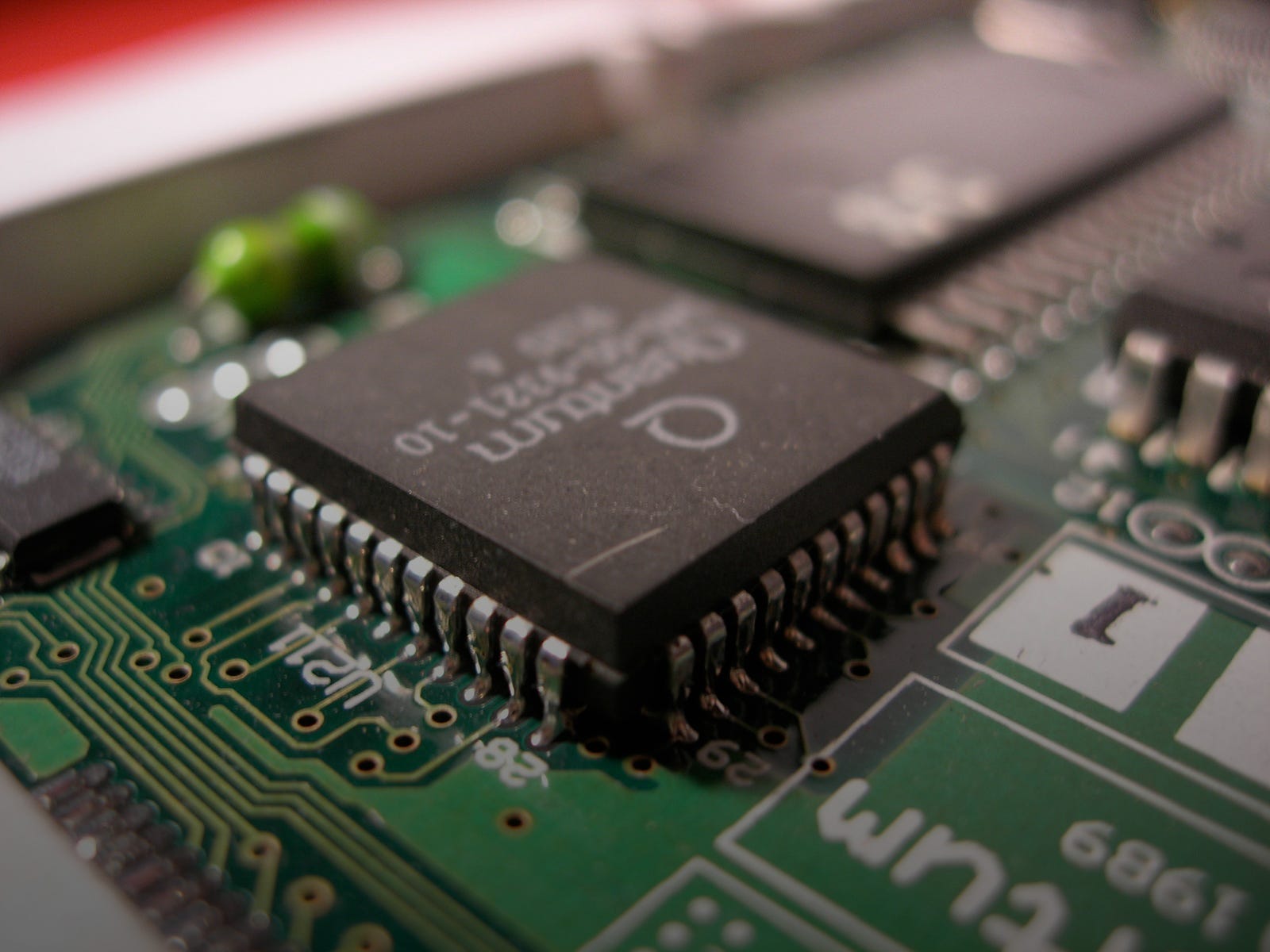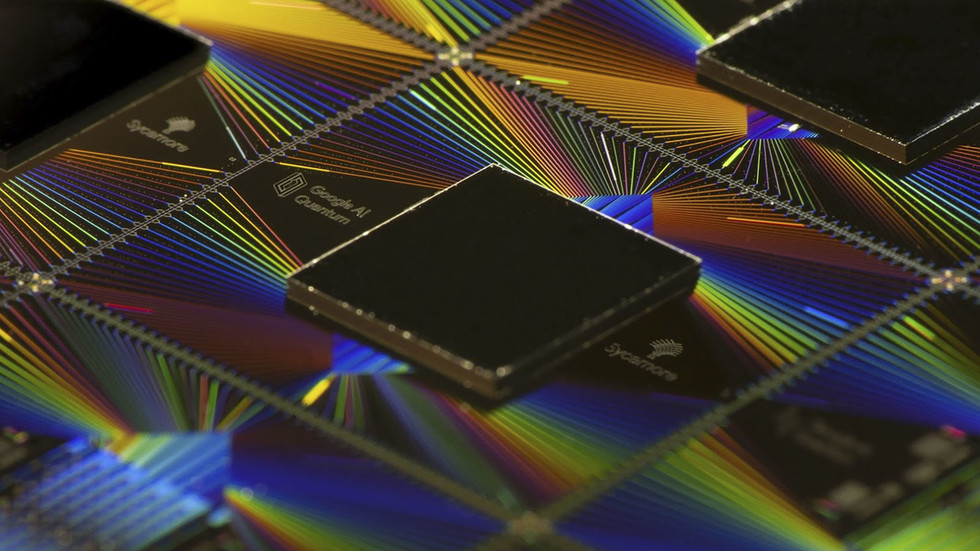Quantum computing is a revolutionary technology that leverages the principles of quantum mechanics for lightning-fast computations. Unlike classical computers, which rely on bits to represent information as either 0 or 1, quantum computers use qubits that can exist in multiple states simultaneously through superposition.
This enables them to process numerous possibilities at once, exponentially increasing their computational power. Additionally, entanglement allows for interconnected qubits, leading to new possibilities in secure communication and problem-solving.
While still in its early stages, quantum computing holds immense promise across industries such as scientific research, drug discovery, logistics optimization, and mathematics. As researchers overcome challenges like noise interference and decoherence, we can anticipate a future where complex computations are executed with unprecedented efficiency.
The Potential Impact of Quantum Computing on Various Industries
Quantum computing has the potential to revolutionize industries such as finance, pharmaceuticals, logistics, and more. With its unmatched computational power, it can solve complex optimization problems and accurately simulate molecular interactions. In finance, quantum computing can provide precise market predictions and risk assessments.
In pharmaceuticals, it can expedite drug discovery and improve treatment options. In logistics, it can optimize resource allocation and streamline operations. Additionally, industries reliant on simulation and modeling can benefit from enhanced accuracy and efficiency.
Embracing quantum computing opens up new frontiers for innovation and growth in various sectors.
Growing Interest and Investments in Quantum Chip Technology
Interest and investments in quantum chip technology are surging as the demand for faster and more powerful quantum computers grows. These chips serve as the backbone of quantum computers, enabling the manipulation of qubits.
Both established tech giants and startups are investing heavily in this promising technology, recognizing its potential to revolutionize industries such as finance, healthcare, and cryptography. With breakthroughs in quantum chip design, practical quantum computing is within reach.
The future of computing looks promising as advancements in this field continue to unfold.
Explanation of Quantum Chips and Their Role
Quantum chips are microelectronic circuits designed to control qubits, the building blocks of quantum systems. Made from materials like superconductors or trapped ions, these chips enable precise manipulation and measurement of qubit states.
With sophisticated algorithms and control systems, they perform operations necessary for complex computational tasks. Quantum chips have vast applications in finance, cryptography, healthcare, and material sciences. Their potential includes unbreakable encryption codes, accelerated drug discovery, and advanced simulations.
These chips represent a breakthrough in computing, with profound implications for various industries globally.
| Quantum Chips | Role |
|---|---|
| Microelectronic circuits | Control qubits in quantum systems |
| Various materials | Enable precise manipulation of qubit states |
| Sophisticated algorithms | Perform operations for complex computations |
| Wide-ranging applications | Finance, cryptography, healthcare, etc. |
Note: The table above provides a concise summary of the key points discussed in this section.
Comparison between classical and quantum chips
Classical computer chips operate on binary logic gates, manipulating bits based on Boolean algebra. In contrast, quantum chips use superposition and entanglement to process information stored in qubits.
While classical chips excel at executing simple instructions quickly, they struggle with solving highly complex problems due to limited processing power compared to quantum counterparts. Quantum chips leverage parallelism through superposition, making them better suited for intricate challenges.
However, quantum computing is still in its early stages and faces obstacles like error minimization and improving qubit stability.
| Classical Chips | Quantum Chips |
|---|---|
| Operate on binary logic gates | Leverage superposition and entanglement |
| Limited processing power for complex problems | Exponential increase in processing power |
| Swift execution of simple instructions | Tackle highly intricate challenges |
Note: The above table provides a summarized comparison between classical and quantum chips for ease of reference.
Key Players in Quantum Chip Development
IBM, Google’s Quantum AI lab, and Rigetti Computing are driving innovation in quantum chip development. IBM has made significant advancements in building reliable and scalable quantum systems. Google aims to develop practical quantum algorithms, while Rigetti Computing focuses on creating general-purpose quantum computers.
These companies are pushing the boundaries of what’s possible in the world of quantum computing, bringing us closer to a future where practical applications powered by quantum technology become a reality.
| Company | Focus |
|---|---|
| IBM | Building reliable and scalable quantum systems |
| Google’s Quantum AI lab | Developing practical quantum algorithms |
| Rigetti Computing | Creating general-purpose quantum computers |
Overview of the Growing Market for Quantum Chip Stocks
Investing in quantum chip stocks offers a compelling opportunity to capitalize on the potential growth of quantum computing. As industries recognize its transformative power, the demand for advanced hardware components like quantum chips is set to soar. Major players like IBM and Google’s Quantum have invested heavily, sparking investor interest.
With applications in finance, healthcare, logistics, and cryptography, the market for quantum chips is poised to skyrocket. Governments worldwide are also investing resources, solidifying the market’s potential. Overall, quantum chip stocks present an enticing opportunity for investors looking to embrace this emerging field.
Best Quantum Computing Stocks to Consider in 2023
Leading quantum computing stocks for investors to consider in 2023 include IonQ, Microsoft, Alphabet, and NVIDIA. IonQ is a pioneer in trapped-ion-based quantum computing with strong partnerships and reliable qubits. Microsoft offers a comprehensive approach through its Azure Quantum platform.
Alphabet’s Google Quantum AI division aims for “quantum supremacy,” while NVIDIA leverages its expertise in high-performance computing. These companies are at the forefront of innovation and have the potential to deliver significant returns on investment as quantum computing continues to advance.
[lyte id=’rMtpLw3xePU’]





